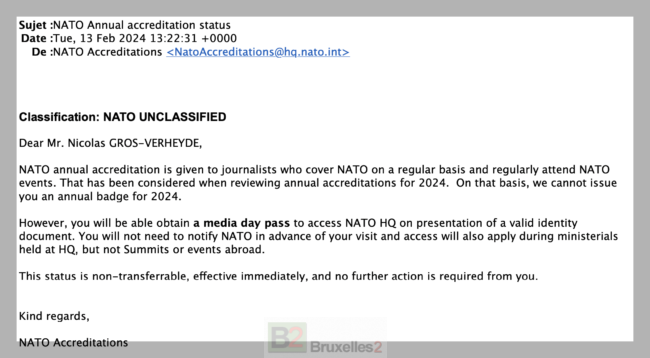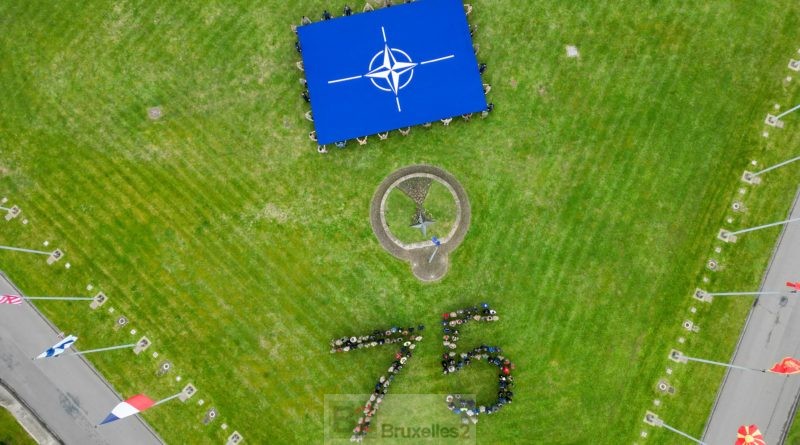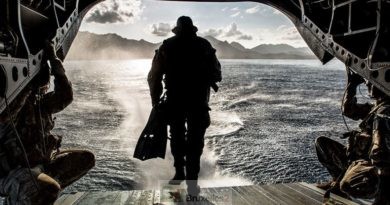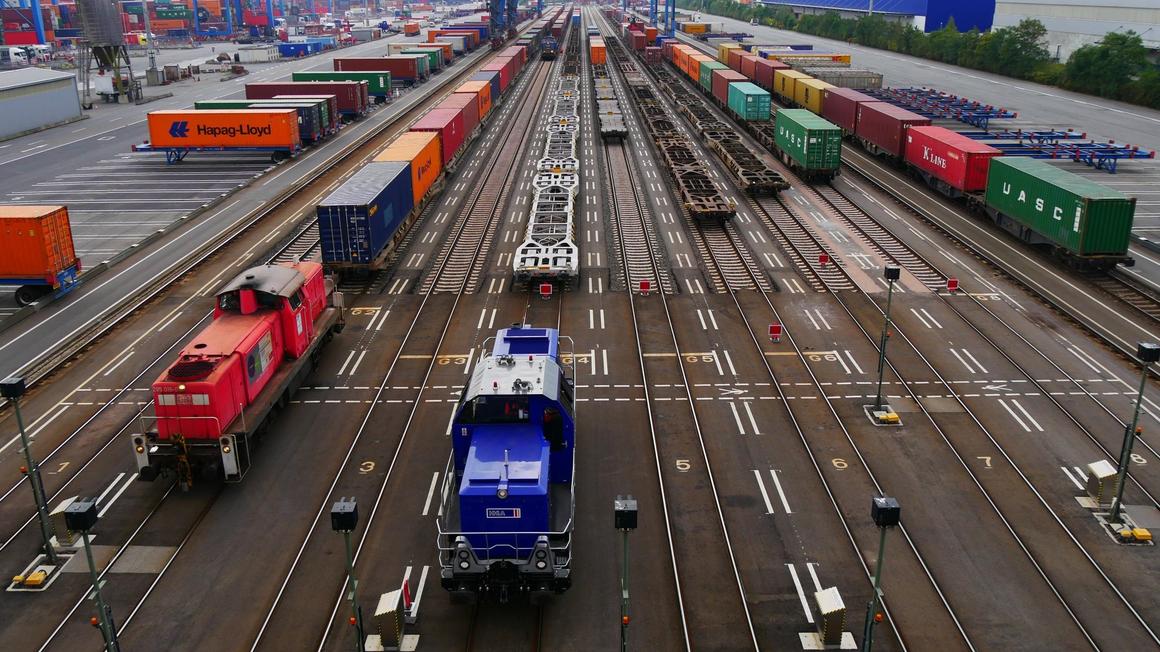[News] Journalists are no longer welcome at NATO headquarters! (v2)
(B2) The Atlantic Alliance has decided to play with fire by reviewing its criteria for accreditation of journalists. And by making decisions on the fly, granting one or the other, according to their good will and according to their mood.
I witnessed it. A few weeks ago I received the response to my request for permanent accreditation to the Alliance. A standard email usually informs me of the availability of the card. This time it's No. Refusal. Reason given: I do not regularly cover the Alliance. Surprising given the number of articles produced by B2 that I sometimes sign, often co-sign and always proofread. Also surprising is the format of the email in English only. A contravention of all uses in an officially bilingual Alliance.

The Alliance in bug mode
No explanation
Taken aback, I asked for explanations. A stupid mistake perhaps. The very wording of the email indicates a sort of automatism. Nay! The same response arises, no more justified or argued. I'll ask again just in case. The head of NATO's media service, Mr. Sanders, then took up his pen, proclaiming the same message. Underlying message: I don't attend the NATO Secretary General's briefings enough. “But you're always welcome, just do a Media Pass Day » he blurted out at the end of the message. Nice lie actually...
The illusion of Media Pass Day
Le Media Pass Day is a procedure that is anything but practical. On the one hand, she only plays for the ministerial side. You must first be accredited several days before. Impossible to do it at the last minute, despite NATO's statements (1). Even if you have completed the accreditation in advance, and everything is in order, the reception (managed by the security service) is extremely slow (2). It's simple, compared to that, even the "customs" of Transnistria, although educated in the Soviet style, are faster! Finally, outside of meetings, for example for briefings before meetings or informal meetings, you must make a special request and have a chaperone, etc. And again he will have to show his credentials under the suspicious eye of the security guard. In short, everything is done to make it impossible for journalists to work quietly and quickly.
Administrative deafness
Behind my personal case, other colleagues find themselves in clownish situations. In the best case scenario, their request is refused. Sometimes they receive no response to their request. Three months after the start of the year! And, each time we give them the “Media pass day” trick. The NATO administration is a heavy bureaucracy. It's known. With its surplus, well-paid civil servants, it does not shine with its productivity. This is not new. But, at this point, Courteline is beaten.
The kingdom of the absurd
During the last ministerial, my tweet and then this post highlighted a whole series of dysfunctions. Several colleagues had to wait a long time: around 45 minutes before being able to enter during the last meeting of Foreign Ministers on Wednesday and Thursday. An Italian colleague arrives in front of the Alliance headquarters on Thursday morning. He gets turned away. However, everyone knows Lorenzo Consoli in Brussels, a renowned journalist, serious, with several years of service with the EU and NATO, nosy certainly but nice as a cream. The Scottish woman from the accreditation service, stubborn, doesn't want to hear anything, and refuses to intervene: “send an email, send an email!” ". Refusing to settle the case.
The journalist, not the cameraman!
Bis repetita in the afternoon with a television team from an Asian country. Introduces himself: the journalist and the cameraman. They work for Asian television. The day is essential for them. NATO has invited Indo-Pacific countries to talk cooperation. “ We came to NATO for the Secretary General's press conference — he tells me, a little annoyed. Almost an hour of waiting! And, in the end, the badge was only given to one of us. Reason: my cameraman colleague did not receive the confirmation email after his accreditation. There are two of us doing the television report. Without the cameraman, we can't do anything. We then had to leave NATO headquarters »
A headless NATO, a bureaucracy that rules
In fact, the political leaders, seized, are absent. The spokesperson, the secretary general in charge of public diplomacy, etc. were informed. They haven't moved a finger, letting it happen... In reality, those in charge of the Alliance have given their administration the reins and no longer have any power over it, which wanders like a headless chicken. The Secretary General, the Norwegian Jens Stoltenberg, busy perfecting his future summit in Washington, the highlight of his ten-year career, has completely abandoned the management of the Alliance secretariat. And controlling the administration remains the least of their concerns. Leaving this serious concern to the successor: a new secretary general is about to be appointed (perhaps the Dutchman Mark Rutte). Its only objective seems rather to be to increase the numbers. A way also to “buy” peace with most of the (small) member countries.
A serious dent to the reputation of the Alliance
For an organization that claims to want to defend “ collectively freedom and democracy ", this scenario is disturbing to say the least, where the administrative takes precedence over the political, obscurantism over the law.
Listen religiously or work?
All these rules are in fact obstacles to modern journalistic work. Indeed, it is not obligatory for a journalist to cover the press conference of the Secretary General of NATO, which is boring as hell. In practice, for a journalist worthy of the name, it is better to go to the patio to listen to a minister make a statement, meet a diplomat, ask for a technical explanation from an expert, or even go to a briefing by one or more other than (if you are invited), listen religiously to the holy prose of Stoltenberg broadcast on the internet (see box).
An inquisitorial way of controlling journalists
By refusing the issuance of permanent accreditations not only to me but to other journalists, the Alliance allows itself to be inquisitorial into the work of journalists, to verify what their working methods are. However, to use the expression of a colleague: the Alliance does not have to interfere in the way in which a journalist organizes his work.
A clear attack on freedoms
What is at stake here is not a simple administrative question, it is a fundamental question: are journalists welcome in NATO or not? Are they allowed to do their work honestly and objectively? Are journalists free to think, to write, to say what they want, what they see, while respecting the usual rules of journalistic ethics? Are they allowed to listen to all the voices within the Alliance, diverse voices which do not always say the same thing, quite simply because each country has its history and its interests? Or are they just machines good at faithfully reproducing official press releases and remarks? Are they controlled, monitored, listened to throughout their presence in Alliance buildings (NB: we can assume this given the content of the email)? If NATO cannot answer these questions, there is no point putting millions of euros into communication, it will see one of its fundamentals ruined: freedom.
A serious breach of the rule of law
Another question arises: does the Alliance respect the principles of good governance and the rule of law? The answer is also clearly No. In any State worthy of the name, a decision which causes harm must be seriously motivated, supported by facts, be the subject of an assessment in the light of a rule of law, and be authenticated by a person who makes the decision. And, if necessary, allow for an appeal or review. None of these rules, although fundamental, are respected in this case. The NATO General Secretariat acts like any authoritarian structure or state, without accountability or respecting any rule of law.
A strategic mistake
Ultimately, this way of doing things, in these times of international tension or war, appears above all to be a huge strategic error. By giving the impression of sorting out “good” journalists from others, of considering journalistic work as minor, it sows trouble and confusion. We would like to give credence to those who accuse NATO of being opaque or anti-democratic that we would not do it otherwise. Depriving certified journalists from doing their work, when critically necessary, is giving free rein to all rumors, in fact giving a premium to disinformation on information. This could leave lasting traces that millions of dollars spent on communication cannot erase. Nameless stupidity.
(Nicolas Gros-Verheyde)
How does a Stoltenberg conference take place?
The press conference is very organized, well planned, well thought out, well controlled. The floor is ritually attributed to 1. an American or British journalist, 2. a German journalist, 3. a Ukrainian journalist (this is logical), 4. a journalist from a nearby country (Georgia, Balkans, Moldova, etc.). ) — Often just to be able to justify an additional statement from the secretary general (1) — 5. a journalist from Eastern Europe. And if there is time left, we will take an Italian or Spanish journalist, or if necessary a French one... But certainly if there is time left.
Concretely, if you do not belong to the Prime categories, it is better to have notified that you want to ask a question, that you ask it in English (do not try French, the general secretary does not speak it, and you should not annoy him). French journalists gradually deserted the exercise...
A well-calibrated exercise, planned in advance, where there is no spontaneity or unforeseen. Mechanical with his swinging hand movements, once to the right, once to the left, Jens Stoltenberg learnedly repeats his message, sometimes reversing the sentences to give the impression that he is saying something new. But nothing more than what has been prepared in advance. Everything is rebroadcast in live. And a script provided very quickly (in English at least).
Once the press conference is over, he doesn't stay to chat for two or three minutes off the microphone. Which was more the case of his predecessor, the Dane AF Rasmussen, who had other faults. The Norwegian is actually not very comfortable in front of the press.
(1) These have an oversized place during the question-and-answer game.
- During a meeting, where we were however "chaperoned" by a diplomat, to get 7 journalists through, it took more than 40 minutes for the security service to make the badges.
- This organization is the consequence of the new modern premises: the entrance is located very far away (several hundred meters from the offices). In the old, prefabricated building, a press officer came there all the time (during ministerial meetings) or was not far away (except during ministerial meetings). It facilitated the work of the complete stranger arriving at the Alliance, a little lost, as well as the more experienced who had “forgotten their badge”. Recognizing both, this system had the merit of simplicity and user-friendliness. Also effective because the press officer took the opportunity to send a message.
Updated with the other cases which come up, each more absurd than the last. Change of paper to News (instead of Editorial)



This is also our case. In the afternoon on April 4, we came to NATO for the SEG press conference, after waiting for an hour, we only distributed the badge to one of us two in reason that my cameraman colleague did not receive the confirmation email after his accreditation. There are two of us doing the television report. Without the cameraman, we can't do anything. So we didn't have to leave NATO headquarters. Sad !
interesting, I'll mention it, without putting your name or the country. to avoid any additional problems. Kind regards, have a good weekend
Nicolas,
Fully in support of your justified anger. At a time when qualified and competent journalists on the complex issues of the EU and NATO (or both), particularly in the field of Defense, do without the services and contacts with professionals of your caliber seems lunar to me.
It seems to me that things are not moving in the right direction.
Friendships and support.
Thanks for support. Unfortunately, the problem is not isolated.